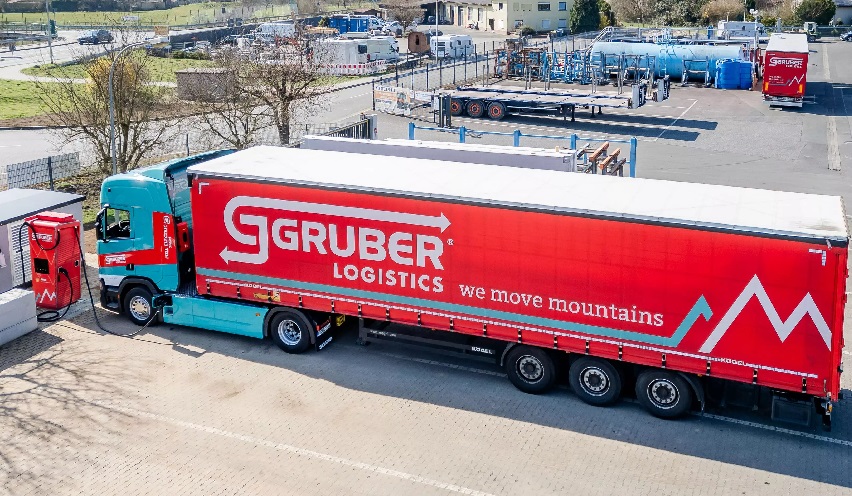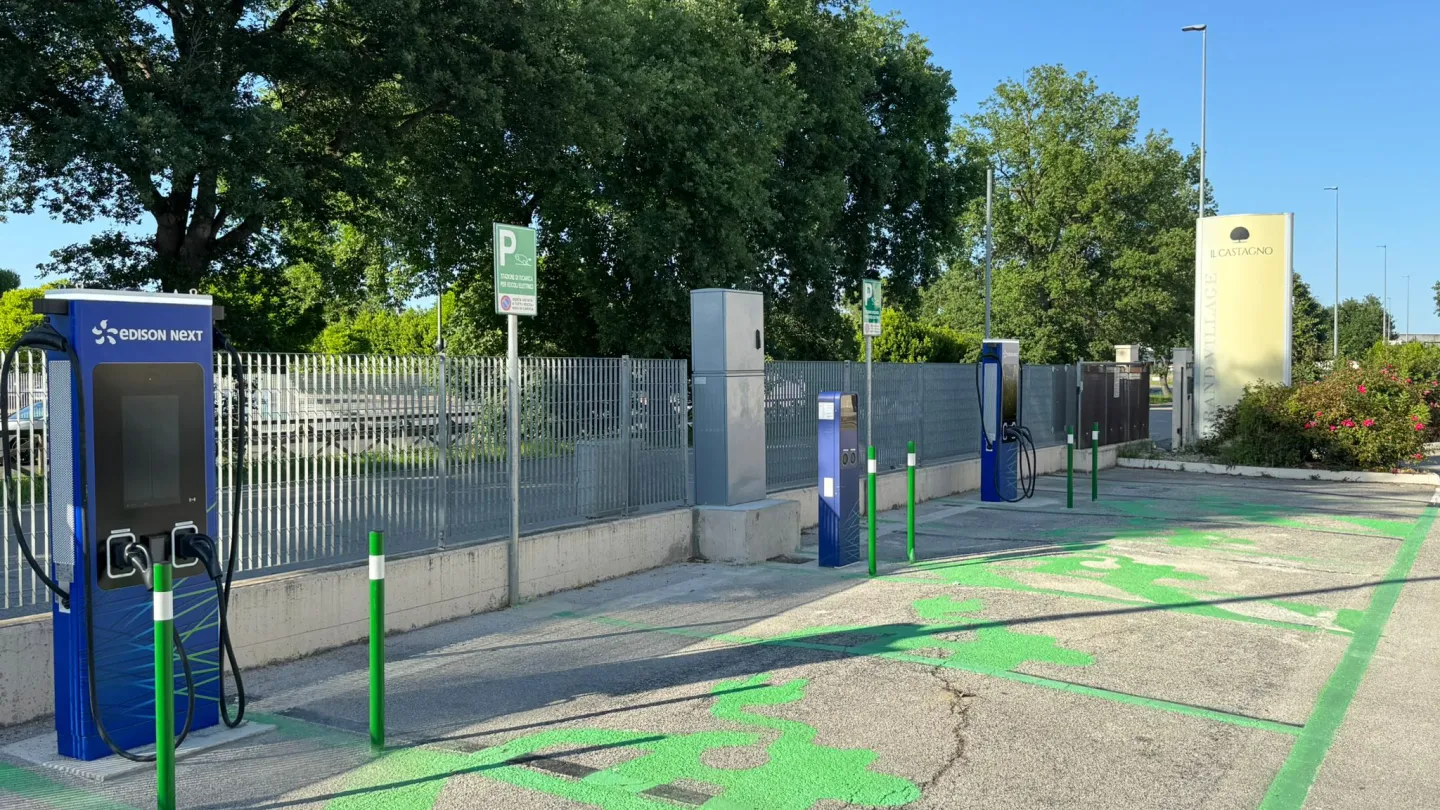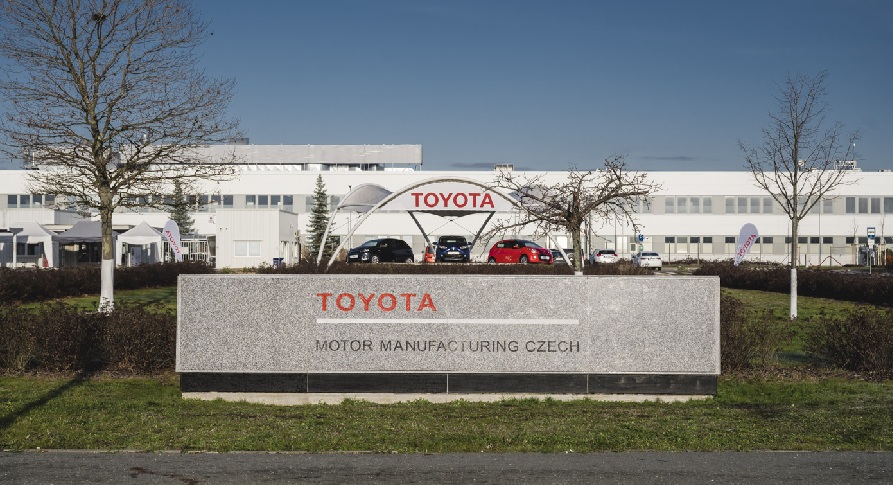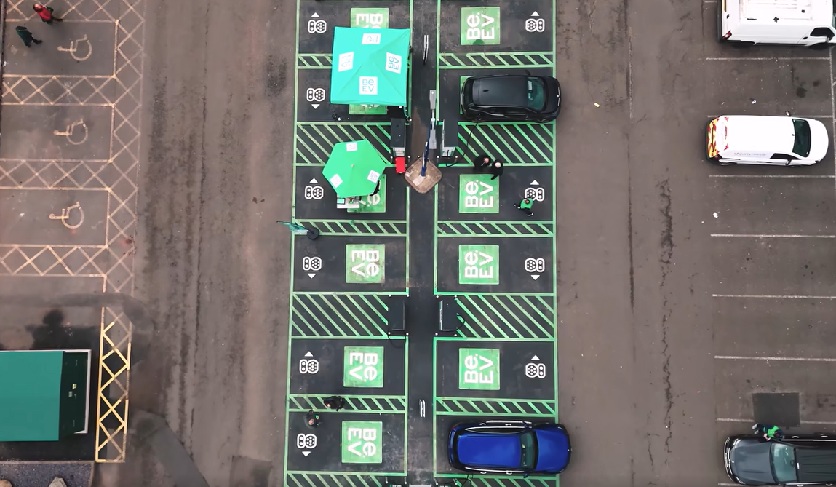The project, titled “Flexible Megawatt Charging Systems, Open Software Architectures and Planning Modules Creating Multi-Charging Hubs for the European E-Mobility System” (FLEXMCS), is coordinated by the Vrije Universiteit Brussel (VUB).
It has a total budget of 9.69 million euros and receives funding from the European Union.
FLEXMCS brings together 15 partners from research and industry across eight European countries to tackle the barriers hindering large-scale deployment of electric truck infrastructure.
One of the key participants is Gruber Logistics.
The involvement of this German logistics company “ensures that the needs of the logistics sector are properly addressed.”
Gruber Logistics is also responsible for testing the megawatt charging point concept at its Karlsruhe site.
This includes assessing not only charging efficiency and energy savings, but also the scalability of multi-connection systems and the integration of renewable energy sources.
Ettore Gualandi, Team Leader for Sustainability and Eco-Innovation at Gruber Logistics, says: “The shift to electric mobility is one of the biggest challenges facing the logistics industry. By taking part in FLEXMCS, we can actively contribute to the advancement of efficient charging infrastructure and accelerate this transformation.”
“We are also applying our logistics expertise to drive technological innovation in managing the European supply chain,” he adds.
About FLEXMCS
The project officially began earlier this year and will run until the end of June 2028.
To support the development of charging hubs, FLEXMCS focuses on design, location, and technical aspects.
For example, the hubs will offer multi-port chargers and smart charging management tools to enhance energy efficiency. They will also be powered by renewable energy to reduce strain on the electricity grid.
“These hubs are expected not only to reduce CO₂ emissions but also to lower operating costs for logistics companies,” says Gruber Logistics.
“The planned chargers, offering up to 1.2 megawatts of power, should be able to fully charge a heavy-duty truck during the driver’s mandatory 45-minute break.”
READ MORE
-
Italy welcomes ABB’s new 50 kW charger: First C50 units installed at Il Castagno outlet
The installation, completed in early June, is part of ABB E-mobility’s Early Adopter Program (EAP), a global initiative aimed at gathering real-world insights to refine new products in their intended environments.
-
Czech Republic in focus: Toyota to build its first electric vehicles in Europe
Toyota is expected to begin production at its new megacentre in the Czech Republic from 2028. Once fully operational, the facility is projected to produce around 100,000 EVs per year.
-
Be.EV installs 16 ultra-rapid chargers at Gallagher Retail Park
The site offers 150 kilowatts charging facilities within a 50,000 sq ft retail park that features major brands such as Decathlon, Costa and B&M.










